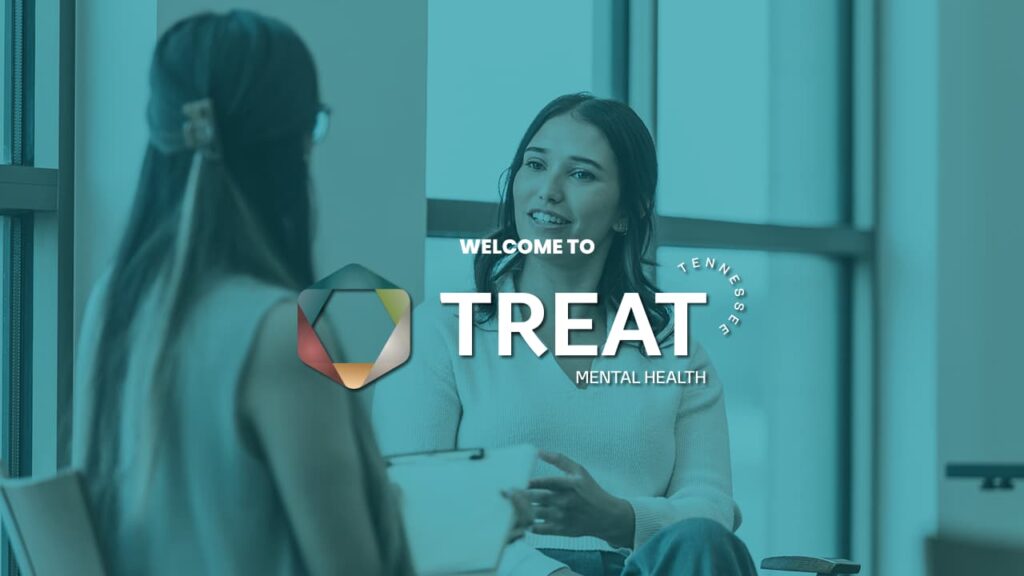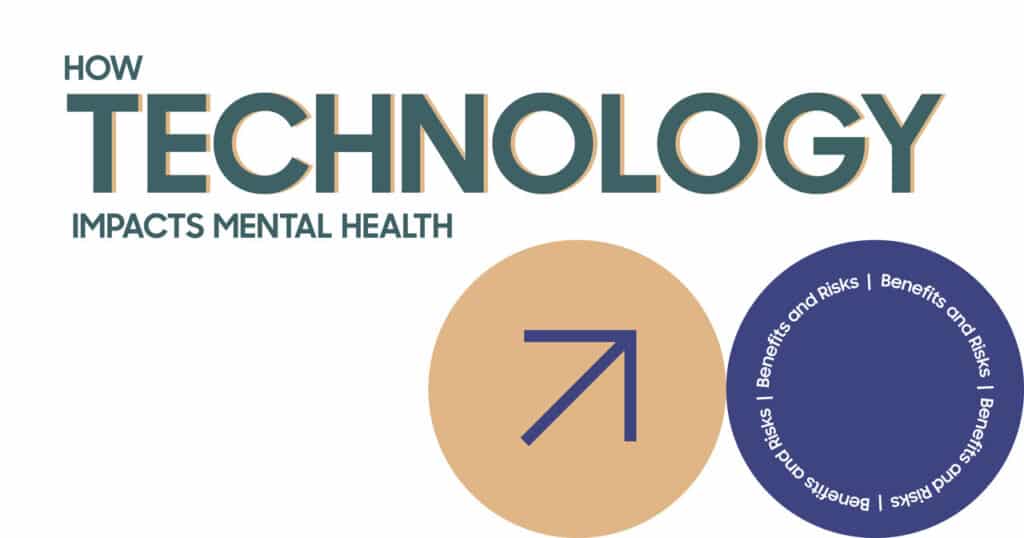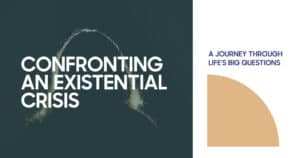Technology has invaded nearly everything that characterizes modern life, whether using personal mobile phones or laptops from the internet to other social media sites. Digital tools shape how people talk, work, and even mentally manage their lives.
Technology has enabled favorable change in the aspect of mental health benefits, but it has also raised questions regarding whether digital tools could contribute to mental health challenges.
It is a double-edged sword relationship between technology and mental health, offering opportunities and risks. This blog will discuss technology’s positive and negative impacts on mental health, offering tips on how to use technology to enhance mental health and avoid its potential pitfalls.
Technology and Mental Health
With the march of time into a completely digital age, we rely on technology for nearly every aspect of our lives. We use our phones and computers for communication, entertainment, work, or health management. But what does this connectivity to digital technology do to our mental health? There are many areas where technology clashes with mental health, good and bad.
While there’s the dark side of excessive use of technology, above all, social media, there is also a silver lining: unparalleled availability of online sources intended to augment mental well-being. For example, some virtual therapy sessions, mental health apps, and support communities are accessible online. So, keeping in mind the impact of technology on mental health is essential for those interested in better managing their well-being amidst an increasingly digital world.
The Positive Effects of Technology on Mental Health
Despite its flaws, technology can be effective in promoting healthy mental conditions. Let’s examine the effects of technology on mental health.
Access to Mental Health Resources
A very important benefit of technology for mental health is its accessibility. Tap on a smartphone or click on a computer to readily access an overwhelming amount of information about mental health, self-care practices, and coping strategies. Blogs, podcasts, videos, and expert advice, in turn, break the barrier to information.
The digital mental health revolution has enabled more people to understand mental health conditions, recognize signs of distress, and seek help. Additionally, above all of this, it gives individuals who may not be ready to see help in person privacy and anonymity, helping break the stigma around mental health issues.
Online Therapy and Support Communities
Virtual therapy websites, such as BetterHelp, Talk Space, and other forms of telehealth, assist people in availing themselves of mental health treatment from the comfort of their homes. Online therapy removes the logistical barriers that face mental health care, including long waiting periods for that one appointment, busy schedules, or perhaps travel to a site. They are connected to their licensed provider, who can make video calls, text messages, or even a phone call.
Apart from individual therapy, online peer support communities have also gained tremendous popularity recently. Channels like Reddit, Facebook Groups, and dedicated mental health forums offer participants a chance to connect and share experiences and support. These online communities reduce the sense of isolation and encourage people to be more forthcoming about their mental health struggles.
Mental Health Apps and Tracking Tools
The other use of technology is mental health apps. Apps like Calm, Headspace, and Mood Fit let users boost mindfulness, monitor their moods, and get personally recommended ways to boost their mental health. These apps give the user the power to control his or her emotional well-being and help the user with deep breathing, meditation, journaling, and many other things.
For example, mental health tracking apps can monitor symptoms of depression, anxiety, or stress in such a way that people can know the patterns accompanying their moods or behaviors. Therefore, using this kind of information, people can make decisions regarding their mental health as well as share the findings with their healthcare providers to ensure they receive more person-centered treatments.
Negative Impacts of Technology on Mental Health
The use of technology has a vast potential positive impact on mental well-being, but there are massive risks associated with excessive use or improper handling of technology. In this section, some adverse technology effects on mental health will be discussed.
Social Media and Mental Health Concerns
The most talked about is the effect of social media on mental health. Through services such as Instagram, Facebook, Twitter, and TikTok, people are exposed to others’ idealized lives at everyone’s fingertips. These constant bombardments of idealized images regarding beauty, success, or happiness lead to feelings of inadequacy, jealousy, or low self-esteem.
Mental health issues, such as anxiety, depression, and loneliness, have directly been attributed to excessive use of social media sites. Permanent comparison with others, the fear of missing out on fun, and the urge to depict perfection are often factors that result in mental health. Furthermore, cyberbullying, harassment, and negative comments on the same platforms heighten the levels of emotional disturbances and worsen cases of mental health.
Screen Time and Sleep Disruption
This adds to an inconvenient sleep cycle because utilizing these gadgets before sleeping has become a frequent practice. The brightness of these screens interferes with melatonin, or the “sleep hormone.” Disturbed sleep impacts mental well-being because it can cause mood swings and irritability and increases the possibility of having a state of anxiety and depression.
Cyberbullying and Online Harassment
Another disturbing characteristic of the impact that technology has had on mental health is the increased rate of cyberbullying. Online harassment through a social networking site, email, or any other communication medium can bring about profound damage to mental well-being. Victims of cyberbullying often become highly anxious, depressed, and even suicidal.
Unlike ‘traditional’ bullying, cyberbullying is relentless when it occurs through messages, images, and posts. Such a stream may well damage the individual’s self-esteem and overall mental health.
Technology and Youth Mental Health: A Closer Look
Children and adolescents are the most exposed to the harmful effects of technology. The popularity of social media and other digital products makes the youth vulnerable to negative perceptions of how technology impacts youth mental health and health in general. This is because studies have shown that children who spend more time viewing different pictures on screens are psychologically disoriented and also have some disorders such as depression, anxiety, and attention.
Now, social media plays a very significant role in the lives of young people. Teens are always at risk of bullying, and their body image, along with self-comparison, affects them in the long run over their emotional development.
Parents, guardians, and teachers must effectively monitor screen time. The concept should be that children use technology healthily. Some adverse effects can be dealt with by encouraging face-to-face interaction, enforcing the limits of time spent on a device, and infusing children with online hobbies.
Practical Tips for a Healthy Relationship with Technology
The harmful effects of technology on mental health have been growing rapidly in recent times. A healthy relationship with digital tools is necessary to circumvent these issues. Here are some practical tips to manage your mental well-being in the digital world:
| Practical Tips | Description |
| Set Boundaries With Social Media | Limit your time on social media, unfollow accounts that make you feel crumby or nervous, and curate feeds full of positive vibes and supportive content. |
| Take Breaks From Screens | Take breaks from the screens by dedicating time during the day to remove yourself from those devices. Try activities that have nothing to do with a screen: reading, exercise, or spending time with family and friends. |
| Practice Digital Detox | Give yourself one day in a week or month without using technology. Use that moment to rejuvenate, take care of yourself, and reconnect with the outside world. |
| Use Apps That Promote Mental Well-Being | Use mental health apps, such as mindfulness tools, relaxation apps, or mood monitoring. Such applications manage stress and promote emotional well-being. |
Future of Technology in Mental Health
The more technology advances, the more it contributes to mental health support. From virtual reality therapy to AI-powered mental health apps and wearable devices tracking emotional states, technology is changing the face of mental health care delivery.
The future promises even more personalized and accessible digital mental health solutions. However, with these tools, there must be the added responsibility to exercise and innovate safeguards that protect user privacy and mental well-being.
Final Discussion
Technology and mental health have a relationship that often presents both benefits and risks. While offering valuable resources and support, digital mental health tools also have significant downsides to the impact of technology on mental health, especially about excessive use of social media and screen time.
If you wish to take care of your mental health, there’s a lot of room for digital-related supportive content. From mental health apps to online therapy, a tremendous amount lies at your fingertips. Remember to set boundaries with technology use and make time to engage with things offline.
FAQs
- How does technology positively affect mental health?
Technology provides access to mental health resources, online therapy, support groups, and apps that help individuals manage anxiety and stress privately and conveniently.
- What is the impact of social media on mental health?
Social media can foster connection but also lead to anxiety, depression, and social comparison, especially with excessive use and the pressure of maintaining an idealized online image.
- How does screen time affect mental health?
Too much screen time, particularly before bed, disrupts sleep, leading to mental health issues like anxiety and depression. Limiting screen use can help improve overall well-being.
- Can technology help with mental health treatment?
Yes, digital tools like online therapy, mental health apps, and telehealth services offer accessible and convenient treatment options, making mental health care more accessible.
- What are the risks of cyberbullying on mental health?
Cyberbullying can cause depression, anxiety, low self-esteem, and even suicidal thoughts. The anonymity of online interactions amplifies emotional distress for victims.







